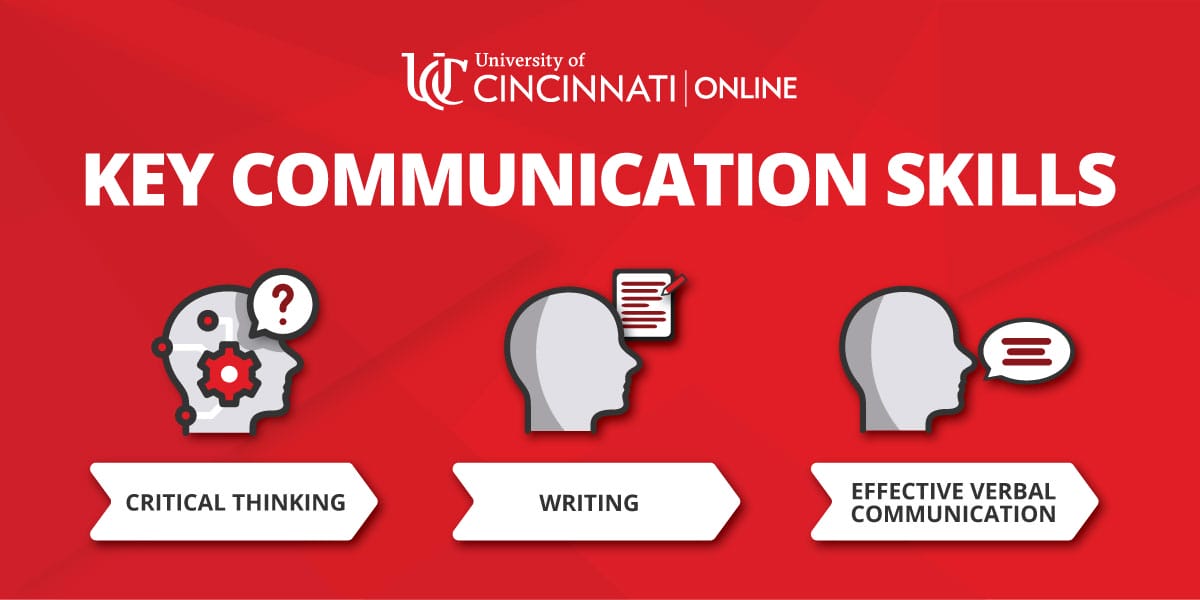Is a Communication Degree Worth Your Time and Money?

A degree is worth its weight in gold (maybe more) when it sets you on the right career path. That’s a message you’ve probably heard constantly throughout your academic career, but it’s also one that sometimes comes with a bit of untruthfulness. Many of us know people who have earned degrees but have either failed to enter their desired careers or ended up not using the degree at all later in life. So, perhaps we shouldn’t say that all degrees are valuable. Instead, degrees help you develop a wide range of skills that can apply to various industries that should be at the top of your list. Enter communication majors. These degrees equip you with a valuable soft skill that opens the door to more profound careers in human resources, corporate communication, and a host of other potential paths. But let’s dig deeper and answer the question – is a communication degree worth it for your intended career goals?
What Does a Communication Degree Cover?
A degree in communication is the degree of choice for anybody who intends to work with people. That may seem like a far-reaching statement – what job doesn’t require working with people – but it’s true. Communication graduates make great social media managers because they understand the psychology of how to talk to others. They become public relations specialists and human resources experts for the same reasons. Even if you don’t intend to follow communication-specific career opportunities, merely understanding communication theory can put you ahead in many fields. And therein lies the point – a communication degree covers the key skills you need to deliver more effective communication. Written, oral, listening, and critical thinking skills all fall under that remit. You’ll also learn methods for persuasion and develop a good understanding of how people react to the messages they receive.
How Useful Is a Communication Degree and Is It Worth It?
We’ve touched on a few reasons why a communication degree is so helpful from a career perspective. It equips you with skills that, as the degree’s name implies, make you a great communicator. That’s useful for so many fields. Take the media and communication occupations segment. The Bureau of Labor Statistics annually shows an average of 109,500 openings in this single career segment. The demand is there, and, when you expand your scope to industries like human resources or even leadership roles, demand for the skills you develop with a communication degree grows larger. You can become a communication professional, which is a term far wider-reaching than you might anticipate. You’ll learn how to use various media platforms and the psychology behind strategic communication. But it’s the critical thinking and research skills that you gain along the way that are transferable into even non-communication-focused roles. That’s what makes a communication degree worth it – the degree offers value even if you don’t focus on the “traditional” communication fields.

What’s the Return on Investment for a Communication Degree?
We can lean on the Bureau of Labor Statistics again to get an idea about the return on investment you’ll achieve with a communication degree. Taking the media and communications career path – which covers roles like content writing and public relations – can result in a median annual wage of $66,320. That’s over $18,000 higher than the median average across all industries. Of course, analysis of a return means nothing without understanding the investment. You’ll need to put time into earning a communication degree. The University of Cincinnati (UC’s) online Bachelor of Arts in Communication requires three or four years to attain, for example. Total tuition per semester costs $6,988 for a U.S. resident, rising to $7,172 for non-residents, which can be a considerable sum to many. But when you consider the median wage statistics we’ve mentioned, that investment in communication skills pays off.
What Can You Do with a Communication Degree?
It’s flippant to say “almost anything” but there is some basis in fact. A communication degree can set you on a marketing or advertising career path. You’ll learn the psychological aspects of communication that make you a good salesperson and the empathy needed to succeed in human resources. Social media, content writing, and journalism careers all place high value on communication degrees. As you get further into your career, your communication skills make it easier to ascend to team leadership and management roles.
Is a Communication Degree Right for You?
A communication degree is right for you if you intend to enter a career that involves exchanging ideas and information with others. That may seem like the most obvious statement in the world. Still, it’s one that holds true. Anyone with a passion for the written word or a drive to work with people – whether it’s as part of an internal team or front-facing and helping customers resolve problems – benefits from having a communication degree. Where it’s less useful is in fields that require a deep understanding of a specific topic, such as data science or some types of engineering, that push you toward specialized degree tracks.

How to Choose the Right Communication Program for You
You’ll usually face three choices when choosing a communication program – certificate, associate’s degree, or bachelor’s degree. A certificate is great if you only need to learn a general element of communication without going much deeper. You can expect a short and inexpensive learning experience but without exploring the sheer breadth of study. With a bachelor’s degree, you go more general in your studies but also spend longer studying them, resulting in a more well-rounded communications specialist. Think of associate’s degrees as the middle-ground between certificates and bachelor’s degrees – they cover more skills than certificates but aren’t as time-intensive as full degrees.
Why UC’s Communication Degree?
Let’s focus on UC’s online Bachelor of Arts in Communication. The degree delivers between 60 and 120 total credits that are transferable to other degrees. We also accept the transfer of up to 90 applicable credit hours for those who want to shorten their time spent studying. The UC curriculum is flexible and delivered 100% online so you can control your schedule. You’ll also work with faculty who’ve actually worked in the communications sector. Their collective experience – coupled with the connections they offer – proves invaluable. Add affordable tuition and financial aid (where applicable), and UC offers a communication degree that puts you in control.

Contact UC to Learn More About Making the Most of Your Communication Career
Is a communication degree worth it? It is with UC. You already know why, so take the first step into a communication career that could see you earning well over the national median wage. We accept applications in three rounds every year – Check out our program today to start your communication studies.
Frequently Asked Questions (FAQs)
Can you make six figures with a communication degree?
Yes, it’s possible to earn six figures with a communication degree, especially in advanced roles like marketing director, public relations manager, or executive leadership positions. While entry-level roles may start lower, your earning potential grows as you gain experience and leverage the versatile skills a communication degree provides.
How long does it take to get a communication degree?
A bachelor’s degree in communication takes between three and four years to earn, though you may be able to reduce the time required if you can transfer credits from an applicable degree.
How useful is a communication degree?
A communication degree is incredibly useful because it equips you with universal skills like critical thinking, writing, and effective verbal communication that are valued in nearly every industry. From media and marketing to leadership and HR, this degree opens doors to a wide variety of career paths.